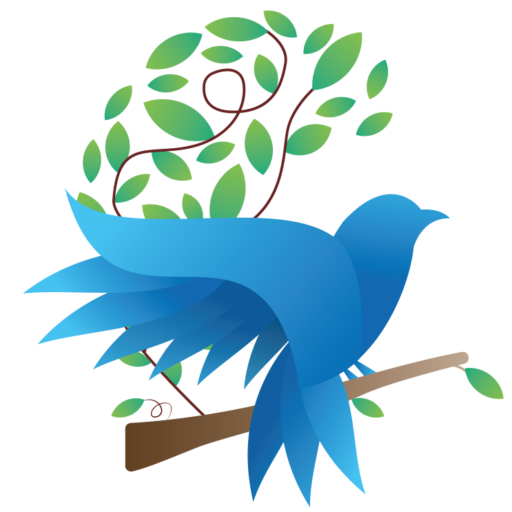Do Birds Eat Wasps?
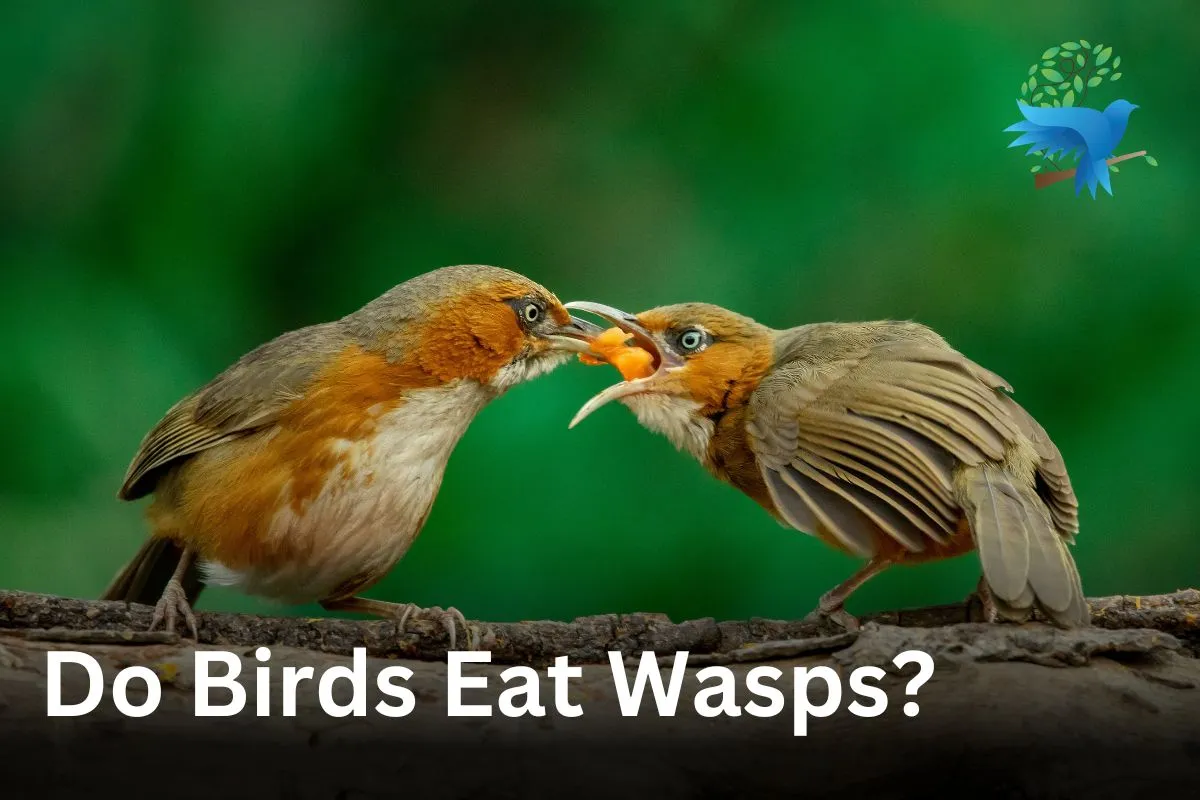
One of the most common questions that arises among bird lovers is Do birds eat wasps? Looking at these beautiful fascinating birds, it is known that they have diverse diets and foraging habits.
These birds play a crucial role in maintaining ecological balance by controlling the population of wasps. While exploring an intriguing aspect of avian predation, there is an involvement of the consumption of wasps, bugs, and other creatures from the environment.

It is quite important to consider the impact of birds eating wasps in the ecosystem. Well, we know that birds eat insects, which is important to keep nature in balance.
In this blog post, we’ll be exploring how birds eat wasps and hunt these small insects in detail. This inquiry led to curiosity due to the potential implications for both birds and the ecosystems they inhabit.
The Diet of Birds
Depending upon the species of the birds, they have a diverse diet that exhibits a wide range of their dietary preferences. Not all birds prefer to eat wasps, as it is not considered to be the common food.
Some of the birds eat seeds, fruits, flowers, insects, nectar, and small animals. Whereas, some of the birds thrive on eating insects including wasps. Minutely, observing the eating habits of the birds, their diet may often vary and depend on the factors. Such as beak structure, habitat (i.e. where they live), and seasonal availability of food sources.
Wasp Species Overview
A wasp is a narrow-waisted insect that has a slender body of the order Hymenoptera of Apocrita suborder. They do not constitute a clade but they can sting their prey or use it as defense as wasps are the members of the Aculeata subclade.
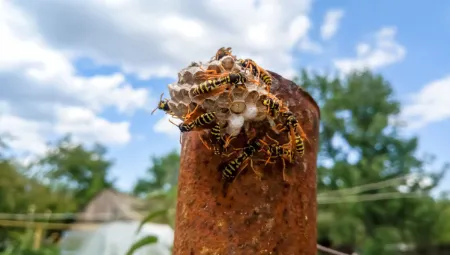
Mainly, Wasps are characterized by their stingers, and social behaviors and encompass various species. This group of fascinating insects has a diverse impact all over the world and displays a wide range of lifestyles and behaviors.
Yellow Jackets and Hornets are the most common wasps that are eusocial and live together in a nest. Significantly, the presence of these Wasps such as Paper Wasps, Yellow Jackets, and Hornets in the ecosystem can influence pollination and pest control.
Read More: Downy Woodpecker Vs Hairy Woodpecker: Detailed Analysis And Differences>>>
Generally, Wasps are of two types i.e. Solitary Wasps (mainly feed on nectar) and Social Wasps (are omnivorous and feed on fallen fruits, nectar, and carrion).
Understanding the different wasp species enhances our appreciation for their ecological roles. In addition, their defense mechanism poses challenges to potential predators i.e. birds.
Birds’ Predation Habits
In the world of Avian Predation, birds are known to have a diverse range of predation habits.
While balancing the ecosystem, birds play an important role in controlling the population of insects. Birds and Wasps’ relationship is not just about predation, it extends to ecological dynamics.
When researchers studied the species of birds, it indicated that all birds do not consume Wasps as it is not part of their diet. But, there are some birds, like the European Bee-eater and the Eastern Kingbird, that are mainly known for feeding wasps.
These birds catch wasps by seizing them in mid-air or by plucking them from foliage. However, not all birds actively seek out or consume these stinging insects.
Benefits and Risks
Both birds and wasps play a significant role in balancing the ecosystem. The beautiful birds and the narrow-waisted insects like wasps are interrelated to one another in the environment. Listing out some of the points what are the benefits and risks of wasps to be included in the bird’s diet.
Benefits
- Birds including wasps in their diet regulate the population of wasps and other insects which helps to contribute to overall balance in the ecosystem.
- To maintain the ecological balance birds prey on wasps to contribute to natural pest control.
- Sometimes the birds thrive on wasps, as they are rich in protein. Including them in their diet increases the necessary nutrients, especially during the breeding season.
- One of the most important benefits for birds is that they can improve their aerial hunting technique.
Risks
- When foraging for food, birds can actively prey on wasps that might disturb their nests.
- Some of the wasp species possess potent venom or defensive behaviors that could harm the birds.
- Still, there are some of the birds that haven’t adopted the selective foraging challenges. While consuming or catching the wasps, birds might face difficulty in handling them.
- Another risk that both birds as well as wasps face is consuming toxic pesticides. It only happens when there is an increase in the population of wasps. To control these wasps, gardeners or homeowners often spray harmful pesticides in their gardens or yards.
Interesting Behaviors
While overviewing or monitoring some of the bird species, it has been observed that they exhibit fascinating behaviors when confronting wasps.
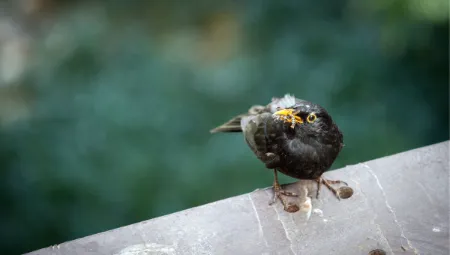
One of the interesting behaviors that have been closely observed is the Eurasian golden oriole which gently removes the stingers from captured wasps, before eating them.
By doing such, this bird reduces the risks of getting stung by showcasing the remarkable adaptation.
Tips for Attracting Birds That Eat Wasps
If you want to attract the birds in your gardens or yards that mainly eat wasps. Then, you have to follow certain steps to attract these beautiful birds. Here are some of the tips that have been enlisted below:
- Firstly, identify the bird species that are available in your areas.
- Research about the species of birds related to their feeding habits and behaviors.
- Make sure that you create a bird-friendly environment that helps to attract insectivorous bird species.
- Plant native flowers, trees, and shrubs in your garden or yards that attract insects.
- Provide them with protein-rich foods like mealworms, insects, wasps, etc.
- Choose the right feeder and place it in the right location that might be visible to them.
- Try to avoid the use of toxic pesticides and as well as chemicals that may harm birds, wasps, and other creatures in the environment.
- Installing nesting boxes in safe places and ensuring that your backyard or garden is free from predators.
- Provide fresh water sources for drinking and bathing.
Conclusion
In conclusion, there are only some species of birds that consume wasps in their diet. While the other species of birds don’t include wasps in their diet.
When shedding light on the diversity of the bird species, it does not depend upon their diet but also on factors like habitats and foraging strategies.
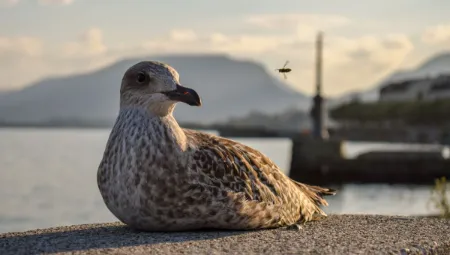
The relationship between birds and wasps underscores the intricate balance in the ecological system. To understand the complexities of this interaction and its broader impact on biodiversity, further observations and research are needed.
FAQs About Birds and Wasps
Which type of birds eat wasps?
Bee-eaters, European bee-eaters, Bluebirds, Black-capped Chickadee, Blue-winged Warblers, Cardinalidae, Purple martins, and Common Nighthawk are the types of birds that eat wasps.
Do birds destroy wasps’ nests?
Some of the bird species often destroy the wasps’ nests to eat the larva.
How to attract birds that eat wasps?
Simply, there are some ways to attract the birds that eat wasps in gardens or yards. They are as follows:
- Identify the bird species.
- Choose the right feeder and provide the bird feeders filled with a variety of different foods.
- Provide nesting boxes.
- Keeping fresh water source.
- Create a safe environment.
